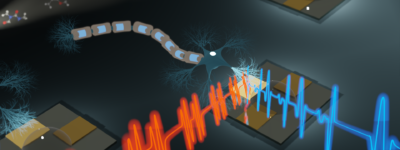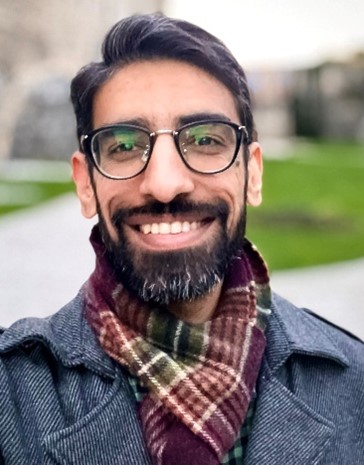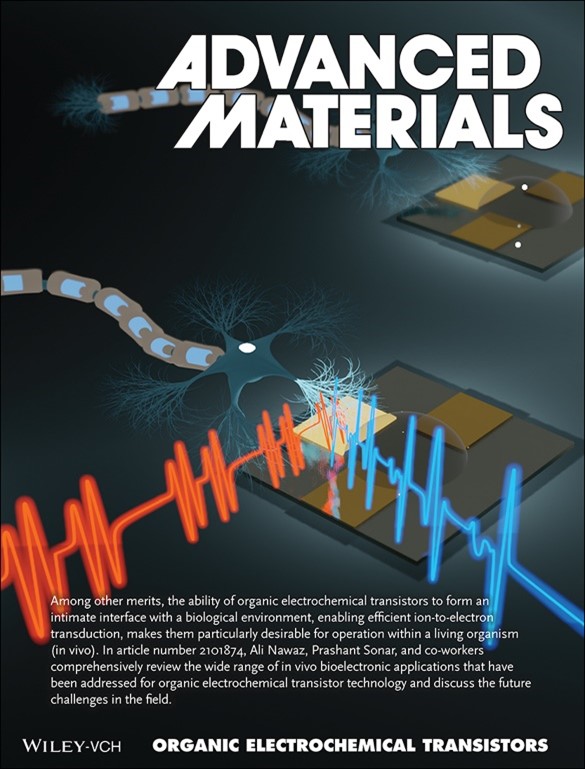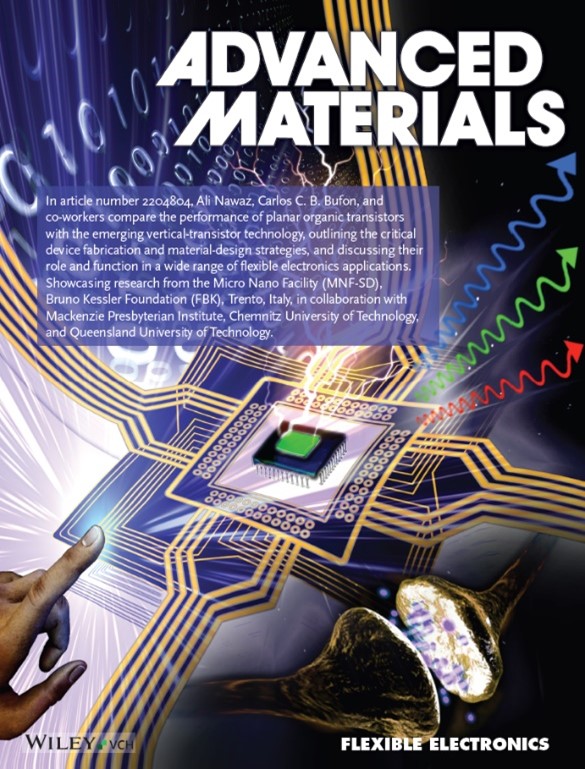Organic transistors for flexible electronics and sensing applications

Bruno Kessler Foundation researchers are part of an international group that is exploring how organic transistors can be used in future flexible electronics and sensing applications.
Dr. Ali Nawaz, who works as a researcher at the Micro and Nano Facility of the Center for Sensors and Devices, recently collaborated with Prof. Prashant Sonar (Queensland University of Technology, Australia), Prof. Wei Lin Leong (Nanyang Technological University, Singapore), and Prof. Carlos César Bof Bufon (Mackenzie Presbyterian Institute, Brazil) to demonstrate the potential of organic transistors for bioelectronic applications and flexible electronics. The studies were published as review articles in 2021 and 2022, and featured on the cover of the prestigious journal Advanced Materials (impact factor: 32.086).
“Organic transistors are particularly interesting for flexible and lightweight products, because of their low-temperature solution processability, and the mechanical flexibility of organic materials endows these devices the natural compatibility with plastic and biodegradable substrates. Due to the tremendous efforts in the multidisciplinary fields of physics, engineering, organic chemistry, and materials science, the organic transistor technology is now emerging as a viable solution for next-generation flexible electronics as well as biomedical applications, such as for the recording and stimulation of electrophysiological signals.”

“Much work needs to be done before this technology becomes ubiquitous, but our reviews show that a strong foundation has already been laid in this field. Future works can help in answering some important questions – e.g., “how to exploit the existing nature- and human-body-derived materials to prepare highly sensitive and easily degradable biosensors?”, “how to enable real-time detection of a wound using a self-healing and biocompatible organic transistor-based biosensor?”, “how to endow a skin-attached biosensor with a long-term sensing capability by preparing a self-powering organic transistor-based sensor?”. This will slowly but surely provide us with more opportunities to exploit many more innovative, flexible applications based on organic transistors”.
Researchers from the Center for Sensors and Devices, including Ali Nawaz, Alessandro Cian, and Antonino Picciotto, are now exploring other ways in which organic transistors can be used as X-ray detectors. This work is currently in its embryonic stages, and benefits from the state-of-the- art infrastructure of Micro Nano Characterization and Fabrication Facility (MNF).
“The successful development of these devices will pave the way towards novel flexible, large area and low voltage ionizing radiation detection systems, capable of providing quantitative and real- time information on the spatial distribution of impinging X-ray radiation,” Ali Nawaz said.

